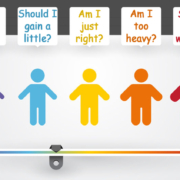What Is the Obesity Paradox?
Did you ever hear something that didn’t seem to make sense? That seemed to go against everything you thought to be true? One example of this is something called “The Obesity Paradox.” I’ve seen a few headlines this week that have talked about it, so it’s time to address it in the Memo.
One of the variables that we would think is related to the development of cardiovascular disease would be body weight. It seems logical: as weight increases, so does the strain on pumping the blood through the additional blood vessels required to feed the extra fat and muscle. People who are overweight may eat the wrong foods, consume too much food, and move too little.
But since the early 2000s, several studies have been published seeming to show that body weight wasn’t necessarily a risk factor for CVD or an early death. They showed that those who were overweight, a BMI between 25.0 and 29.9, had lower mortality rates than those who were normal weight. Some showed that stage-one obesity, a BMI between 30.0 and 34.9, was also not related to mortality. Thus the term “The Obesity Paradox” was coined. But is it true? We’ll take a look at the research the rest of the week.
What are you prepared to do today?
Dr. Chet









